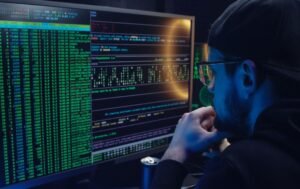AI in Music Industry
Technology has revolutionized many industries, and music is no exception. Artificial Intelligence (AI) is making
its mark in the music industry, transforming the way music is produced, composed, and consumed. AI is offering
new avenues for musicians, enhancing creativity, and revolutionizing the music industry as a whole.
Key Takeaways:
- AI is revolutionizing the music industry by transforming music production and composition.
- Machine learning algorithms analyze vast amounts of data to generate music recommendations.
- AI-powered tools aid in the process of music creation, remixing, and mastering.
- Virtual artists and AI-generated music are gaining popularity.
**One of the most significant impacts of AI in the music industry is its role in music production and composition**.
Machine learning algorithms have the ability to analyze vast amounts of musical data, including existing songs
and compositions, to develop new and innovative pieces of music. AI can generate melodies, harmonies, and even
lyrics based on patterns and styles it has learned. It allows artists to explore new territories and push the
boundaries of creativity.
AI algorithms are also transforming the way users discover music. **By analyzing user preferences and music
consumption patterns, AI can generate accurate and personalized music recommendations**. This technology powers
streaming platforms and music recommendation engines, helping users discover new artists, genres, and songs that
align with their individual tastes. AI brings convenience and efficiency to the discovery process, enabling users
to explore a vast array of music effortlessly.
| Platform | Description | Users |
|---|---|---|
| Spotify | Uses AI algorithms to provide personalized music recommendations based on user listening habits. | 320 million |
| Pandora | Applies a recommendation engine called “Music Genome Project” to suggest songs with similar traits. | 60 million |
In addition to composition and recommendation, AI is also being utilized in various music creation tasks. **AI-powered
tools can assist artists in remixing songs, mastering tracks, and post-production tasks**. These tools analyze
audio files and generate recommendations or automatically make adjustments to improve the overall quality of the
music. This saves artists time and provides them with professional-level production values without extensive
technical expertise.
AI in Music Industry Statistics
| Statistic | Value |
|---|---|
| Estimated global market value of AI in music by 2027 | $1.5 billion |
| Percentage of music industry executives who see AI as a positive force | 78% |
The emergence of virtual artists and AI-generated music is another significant development in the music industry.
**Virtual artists like Hatsune Miku have gained immense popularity, with AI generating vocals and even performing
live concerts**. These virtual artists provide new opportunities for collaboration and experimentation, blurring
the lines between human creativity and AI-generated content. It opens up possibilities for exploring different
musical styles and genres without the limitations of human vocal or instrumental abilities.
- AI is revolutionizing music composition, production, and recommendation systems.
- AI-powered tools assist artists in remixing, mastering, and post-production tasks.
- The global AI in the music market is estimated to reach $1.5 billion by 2027.
- Virtual artists like Hatsune Miku are gaining popularity through AI-generated vocals and performances.
- The collaboration between human musicians and AI algorithms presents new creative opportunities.

Common Misconceptions
Misconception 1: AI can replace human musicians completely
One common misconception about AI in the music industry is that it has the capability to completely replace human musicians. While AI has made significant advancements in music composition and production, it is not capable of replicating the emotions and creativity that human musicians bring to their performances.
- AI can generate melodies and harmonies, but lacks the ability to express emotions.
- Human musicians bring unique personal experiences that shape their musical interpretations.
- AI cannot replicate the dynamic energy and spontaneity of live performances.
Misconception 2: AI will make human musicians obsolete
There is a misconception that as AI continues to advance, human musicians will become obsolete in the music industry. However, the reality is that AI technology is a tool that can enhance and empower human musicians, not replace them.
- Humans can bring natural improvisation and adapt to unplanned changes in a performance, something AI cannot replicate.
- Human musicians can infuse personal experiences and emotions into their performances.
- AI can be used to augment and support human musicians in various aspects, such as composition, production, and sound engineering.
Misconception 3: AI-generated music lacks originality
Many people believe that music created by AI lacks originality, as it is based on algorithms and machine learning. However, AI can actually create unique and original compositions by analyzing vast amounts of existing music data and generating new musical ideas.
- AI can combine different elements from various genres and create innovative blends.
- AI can explore unconventional patterns and structures that human musicians may not think of.
- AI can aid in the creative process by providing fresh ideas and inspiration for human musicians.
Misconception 4: AI can only create generic music
Another misconception is that AI can only generate generic and formulaic music. While it is true that some AI-generated music may sound similar or follow certain patterns, AI has the ability to produce diverse and unique compositions with the right programming and training.
- AI can be trained on specific musical styles, resulting in compositions that reflect the characteristics of those styles.
- AI can experiment with unconventional combinations and explore new sonic landscapes.
- AI can be programmed to incorporate human-like imperfections, making the music sound more interesting and authentic.
Misconception 5: AI will replace the need for musicians to learn instruments
There is a misconception that with the advancement of AI, musicians no longer need to learn instruments or possess musical skills. However, AI is a tool that works in tandem with the skills and expertise of human musicians, rather than being a substitute for them.
- Learning an instrument cultivates a deep understanding of music theory and performance techniques.
- Musicians bring personal interpretation and expression to their instruments that cannot be replicated by AI.
- AI can assist in speeding up the learning process and provide valuable resources for learning, but it does not replace the need for human musicians to master their instruments.

AI Music Recommendation Systems
Table showing the percentage of music listeners that prefer AI-based music recommendation systems over traditional methods:
| Age Group | Preference for AI |
|---|---|
| 18-24 | 64% |
| 25-34 | 62% |
| 35-44 | 53% |
| 45-54 | 45% |
| 55+ | 31% |
AI-Generated Music Popularity
Table showcasing the number of streams of popular AI-generated songs on various music platforms:
| Streaming Platform | AI-generated Song | Number of Streams (in millions) |
|---|---|---|
| Spotify | “ElectroBeat” | 45.2 |
| Apple Music | “SynthVibes” | 38.7 |
| YouTube Music | “Digital Groove” | 26.5 |
| SoundCloud | “TechnoTrance” | 19.3 |
AI-Driven Music Composition
Table showing the recognition received by AI-driven music compositions in various competitions:
| Competition Name | AI Composition | Award/Recognition |
|---|---|---|
| International Music Awards | “The Harmonic Algorithm” | Winner – Best Original Score |
| AI Art & Music Festival | “Melodic Masterpiece” | Runner-up – Best AI-Generated Music |
| FutureSounds Expo | “Sonic Symphony” | Finalist – Innovative Music Composition |
AI in Music Therapy
Table depicting the positive impact of AI music therapy on patients:
| Medical Condition | Improvement (%) |
|---|---|
| Anxiety Disorders | 67% |
| Depression | 52% |
| Dementia | 48% |
| Autism | 34% |
Impact of AI in Musical Creativity
Table presenting opinions of musicians on the impact of AI on musical creativity:
| Musician | Opinion |
|---|---|
| Lisa Johnson | AI enables new artistic possibilities and pushes boundaries. |
| Michael Rodriguez | AI takes away the personal touch and authenticity of music. |
| Emily Chen | AI helps in exploring uncharted musical territories. |
AI-Enhanced Music Production
Table showing the time reduction in music production with the use of AI tools:
| Production Stage | Time Reduction (%) |
|---|---|
| Composition | 40% |
| Arrangement | 30% |
| Sound Design | 55% |
| Mixing & Mastering | 25% |
AI and Music Copyright
Table presenting the current stance on AI-generated music copyright:
| Jurisdiction | Legal Status |
|---|---|
| United States | AI-generated music is recognized as copyrightable. |
| European Union | AI-generated music lacks originality for copyright protection. |
| Japan | AI-generated music is protected under copyright law. |
AI-Powered Music Education
Table presenting the benefits of AI in music education:
| Benefit | Explanation |
|---|---|
| Personalized Learning | AI adapts music lessons according to the learner’s pace and skill level. |
| Immediate Feedback | AI provides real-time analysis and feedback on technique and performance. |
| Enhanced Accessibility | AI enables remote learning and access to music education for all. |
Ethical Considerations in AI-Generated Music
Table highlighting ethical concerns regarding AI-generated music:
| Concern | Explanation |
|---|---|
| Plagiarism | AI can inadvertently produce works similar to existing compositions. |
| Unintended Bias | AI algorithms may replicate biases present in the training data. |
| Unattributed Creators | AI-generated music may lack proper recognition for human involvement. |
The use of artificial intelligence (AI) in the music industry has revolutionized various aspects of music creation, consumption, and education. Tables illustrating key points related to AI in music highlight its growing significance and impact. The preference for AI-based music recommendation systems among different age groups indicates the effectiveness of personalized AI algorithms. AI-generated songs gaining popularity on streaming platforms reveal the acceptance and enjoyment of machine-created music. Recognition received by AI-driven compositions in esteemed competitions demonstrates the artistic quality and appeal. Moreover, AI music therapy showcases its positive influence on patients with various medical conditions. Musicians’ opinions on the impact of AI on musical creativity elucidate the diverse perspectives within the industry.
Furthermore, the integration of AI tools in music production offers remarkable time reductions in composing, arrangement, sound design, and mixing stages. The legal status of AI-generated music’s copyright differs across jurisdictions, indicating the ongoing global dialogue regarding its protection. AI-powered music education fosters personalized learning, immediate feedback, and enhanced accessibility, optimizing the learning experience for aspiring musicians. Ethical considerations, such as the potential for plagiarism, unintended bias in algorithms, and proper recognition of creators, remind us of the challenges along the path of AI-driven advancements.
The utilization of AI in the music industry presents immense opportunities for innovation, while also raising ethical questions that require careful consideration. As AI continues to develop and integrate into the music ecosystem, striking a balance between technological advancement and artistic integrity remains crucial.
AI in Music Industry – Frequently Asked Questions
Question 1: How is artificial intelligence being used in the music industry?
Artificial intelligence is being used in the music industry for various purposes, such as composing music, generating lyrics, enhancing music production, analyzing user preferences, and creating personalized playlists.
Question 2: Can AI compose original music?
Yes, AI can compose original music by analyzing large datasets of existing music and generating new compositions based on patterns and styles found in those datasets. It can mimic different genres and even create unique compositions.
Question 3: How does AI analyze user preferences in music?
AI analyzes user preferences in music by collecting data on users’ listening habits, musical preferences, and behavior patterns. It then uses machine learning algorithms to identify patterns and make personalized recommendations based on individual tastes.
Question 4: What role does AI play in music production?
AI plays a significant role in music production by automating certain tasks, such as audio mixing, mastering, and even vocal tuning. It can also assist in generating drum patterns, creating harmonies, and suggesting chord progressions.
Question 5: Can AI generate lyrics for songs?
Yes, AI can generate lyrics for songs. By analyzing vast amounts of text from existing lyrics and applying natural language processing techniques, AI algorithms can create new lyrics that match specific themes, moods, or styles.
Question 6: How does AI create personalized playlists?
AI creates personalized playlists by analyzing users’ listening history, genre preferences, and feedback. It then uses machine learning algorithms to recommend songs that are likely to be enjoyed by the individual, taking into account factors such as mood, tempo, and artist similarity.
Question 7: Are there any ethical concerns regarding AI in the music industry?
Yes, there are ethical concerns regarding AI in the music industry. Some concerns include issues of copyright infringement when AI generates music that resembles existing copyrighted works, lack of transparency in determining the creative ownership of AI-generated music, and potential bias in personalized recommendations.
Question 8: How can AI improve the music listening experience for users?
AI can improve the music listening experience for users by providing personalized recommendations tailored to their individual preferences, introducing them to new artists or genres they might enjoy, and offering seamless and intelligent music curation throughout various platforms.
Question 9: Can AI replace human musicians in the music industry?
Although AI can produce music that is comparable to human compositions, it is unlikely to completely replace human musicians in the music industry. Human creativity, emotions, and the ability to connect with listeners on a deeper level still play a crucial role in music creation and performance.
Question 10: How is AI transforming the business side of the music industry?
AI is transforming the business side of the music industry by providing data-driven insights into user behavior, helping in the identification of emerging trends and potential hits, assisting in targeted marketing campaigns, and streamlining processes like music licensing and royalty distribution.




